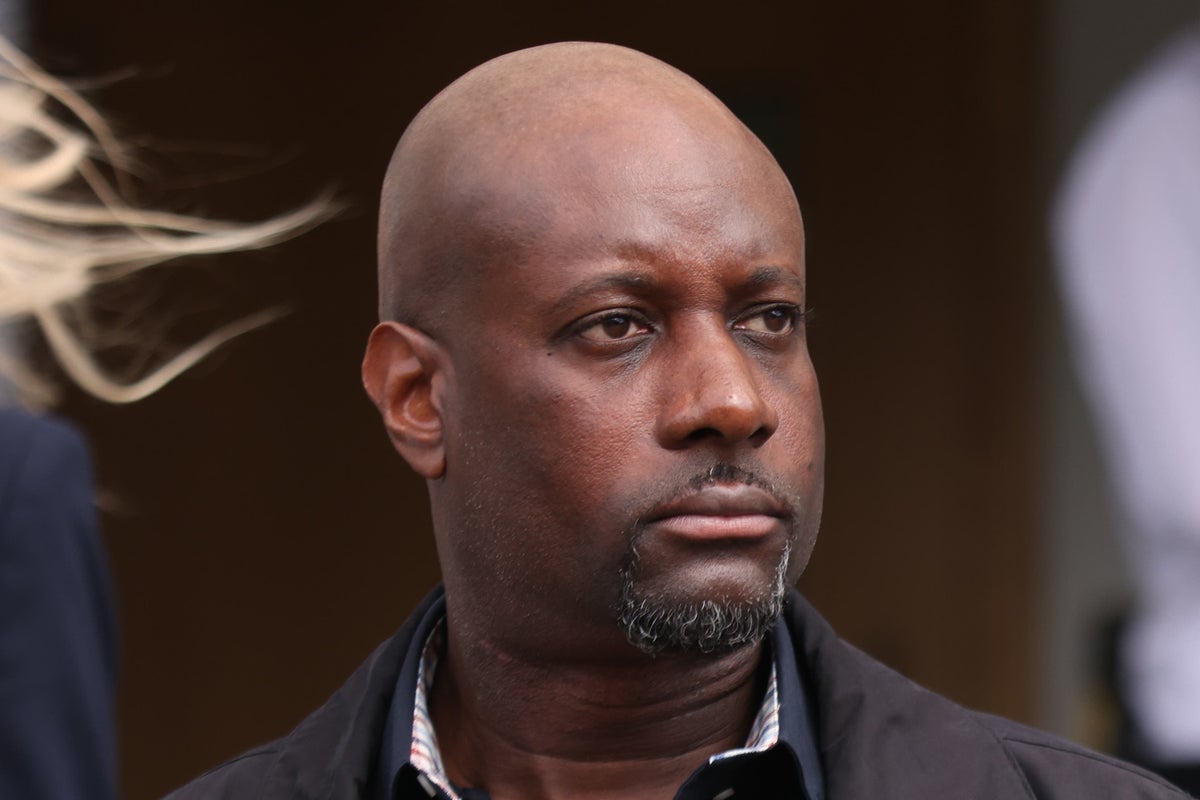
The driver in the Croydon tram disaster broke down in court as he told jurors: “In some ways I held myself responsible.”
Alfred Dorris, 49, was allegedly going three times the speed he was supposed to be doing before his tram derailed on a sharp curve at Sandilands in south London, killing seven passengers and seriously injuring 19 more.
Dorris is on trial at the Old Bailey for failing to take “reasonable care” of the health and safety of himself and his 69 passengers on Tram 2551 on November 9 2016.
The prosecution alleged Dorris may have had a “micro-sleep” or become disorientated before the crash.
On Thursday, Dorris broke down in front of victims’ families when he gave evidence for the first time in Court One of the Old Bailey.
In some ways I held myself responsible for what happened. I could not explain how it happened— Alfred Dorris
He became distressed and wiped away tears as he described being arrested and put in the back of a police van after the crash, having never been in trouble before.
The married father-of-one said: “I was told that I was being arrested for manslaughter because of multiple fatalities.
“I was broken. I could not believe what I was hearing.”
On arrival at a police station, he said: “I broke down. One of the officers kind of put his hand on my shoulder, tapped me in a reassuring way that was quite nice, to be honest. I was taken to a police cell.”
By then, he said the adrenalin was starting to wear off and he felt “sick” and suffered physical pain in his right side.
Later, he was released under investigation and took his family to stay in a hotel for four weeks due to the intense media interest in the disaster.
On his state of mind at the time, he said: “I was just all over the place, just broken, disbelief at what had happened.
“In some ways I held myself responsible for what happened. I could not explain how it happened.”
The defendant said lighting in the tunnel on the approach to the sharp turn where the derailment happened was “inconsistent”, and in the dark he had to rely on his “route knowledge and experience as a driver”.
Defence barrister Miles Bennett said: “You said one of the issues causing you upset just after the event and into 2017 was you could not piece together in your mind what had happened and how you got to this state.
“Even with the passage of time now are you able to tell the jury how it is you became disorientated?”
The defendant replied: “No.”
Dorris said he had got “confused” before the crash but not due to a lack of concentration as it had been a “normal average” day up until that point.
He went on to describe how he continued to “struggle” with what happened and reached his “lowest point” during the lockdown when he was unable to start treatment for “severe case of PTSD”.
“For me being in lockdown with my family suffering as I was I just got worse and worse, a ticking timebomb waiting to go off and the family was in the firing line.
“One day I just lost control and me and my wife at the time had an altercation and I became very aggressive towards her and that was the beginning of the end of my marriage and we separated.
“That was the last time I saw my family, the last time I saw my daughter.”
The defendant said he was excused from taking part in the inquest into the victims’ deaths.
Mr Bennett asked whether he regarded tram driving as just a job.
The defendant replied: “I was proud of my job. I enjoyed my job. What I was doing was important to me.
“For me, I was always on time, smartly dressed. My appearance was really important to me. I’m wearing a uniform so I’m representing the company. I wanted to leave a good impression and be proud.”
On his attitude to driving, he told jurors: “For me it was all about customer comfort. I want them to feel they had a comfortable ride, always smooth. That’s my driving style.”
Mr Bennett asked: “Did you have any problems with fatigue when you went onto permanent earlies working on the trams?”
Dorris replied: “No, never.”
Asked what he would have done if he had felt tired before a shift, he said: “I could have just explained I was not feeling fit to work and they would sign me off.”
The court heard how Dorris had applied to work on the trams in 2008 as a “stepping stone” to realise his ambition of becoming a train driver on the railways.
He underwent 13 weeks of training, which involved learning the route and becoming “competent in driving and manoeuvring the tram”.
Since qualifying, he said there had been only a few occasions he needed to use the emergency or hazard section of the traction brake controller when people had walked in front of the train.
Previously, he had also worked early shifts as a bus driver and a milkman.
He had never felt sleepy or fatigued in those jobs, preferring the hours because they “fitted around my family life”, he said.
In his job as a bus driver, his only accident had been a “little scuff” with a car at Sloane Square on his first day out on his own, the defendant said.
Dorris, from Beckenham, south-east London, denies a single charge of failing to take reasonable care at work under the Health and Safety at Work Act 1974.







